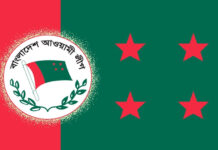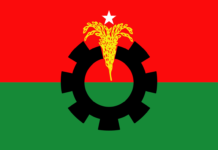M. I. Ali
As the general elections draws near, both the 14-Party mega combine and the 18-Party alliance – parties in power and in the opposition – are worried whether there will be a level playing field for them to play in. The truth is that except for the 1991 elections this country never had level playing fields during the general elections.
The 1991 election was an exception. Ershad and his Jatiya Party had been evicted from power; they were the only ones who were denied any place in the field. This effectively made a majority of the thugs and goons inactive because, as is the nature of politics in our country, Ershad’s nine years in power had attracted most of the thugs and goons to his party.
The 1991 Elections will therefore remain unique in the annals of our history where both Awami League and BNP shared equal opportunities in facing the electorate. This election also saw the rise of BNP as the major political player in the country. Prior to this there was a general perception that Awami League would be the popular choice in any free and fair election.
Awami League never recovered from the shock defeat in 1991. It was not until the recent five city corporation elections that they were willing to accept that they are not the first choice of the voters of the country. Had they not been confident that they would win most of the five city corporation seats, it is unlikely that they would have held these elections.
The scenario changed dramatically in the 1996 elections. The five years in power drew most of the political goons and rent seekers to BNP. They drove a wedge between the people and the party and BNP’s popularity plummeted with Awami League being the gainer by default. So when the Elections were held under a neutral Caretaker Government (CG), the BNP rent seeking activists, who were responsible for most of the illegal activities that made the party unpopular, went into hiding, giving Awami League a near walkover. The playing field was devoid of the BNP players.
The case was just the opposite in 2001. On this occasion the goons and rent seekers who had switched their loyalty from BNP to Awami League, again went into hiding leaving the field open to BNP activists to score at their free will.
Once again, in 2008, the government of Moinuddin-Fakhruddin made sure that the BNP activists stayed away from the foray to allow Awami League to win decisively. It does not need much imagination to think what would have happened to Mainuddin-Fakhruddin had BNP won the elections.
The last three National Elections saw that the field activists and rent seekers of the immediate past incumbent governments were more or less absent during the elections and they have only themselves to blame for this. Their activities during their party’s incumbency necessitated them to hide from the law enforcing forces when their patrons went out of power.
Should a neutral administration conduct the next general elections, it is most unlikely the Awami League storm troopers will be anywhere to be seen, BNP will be left to score at their free will. And Awami League will have only themselves to blame for not raining in the Students League and the Youth League rent seekers during their incumbency.
The last word is that so long as Awami League and BNP have their students and youth front organizations and so long and they are allowed to do what they have been doing since 1992, there will never be a level playing field during the general elections. Therefore, if these parties seriously want a level playing field, they should evaluate the advantages and disadvantages of having these front organizations. These front organizations have time and again been the root cause of their defeats in the elections.
Source: Weekly Holiday










